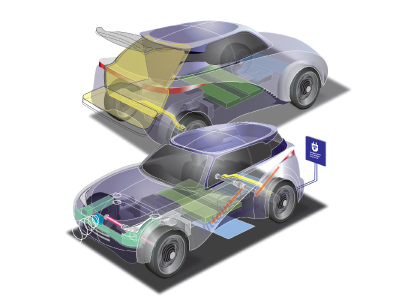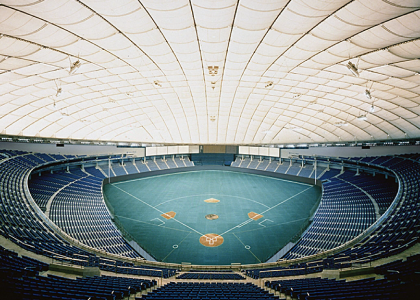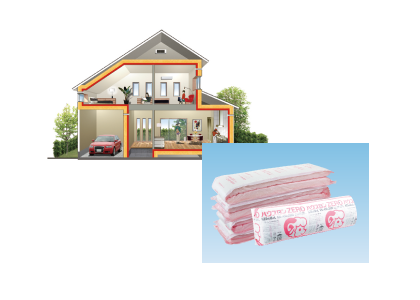Nittobo Group strives to contribute to the realization of an enriched society,
serves as a valued corporate group in society, and commits to the creation of comfortable life.
Glass Fiber
Nittobo continues to be the frontrunner in the field of glass fiber manufacturing
Its glass fiber business will stay ahead of the pack by exploring the infinite possibilities of the product.
The Nittobo Group is Japan's first industrial manufacturer of glass fiber. Today, Nittobo's glass fiber business is vertically integrated from filament production through glass fabric processing to composites development, supplying a wide spectrum of customers with high-quality products. One example is the ultra-thin glass cloth made by weaving glass fabric of several microns thickness, which has found use as precision material for PCs, smartphones, and other electronics that are becoming increasingly small, lightweight, and functional. Its quality has garnered high praise around the world.
In the glass wool sector as well, Nittobo boasts its high proprietary technology as a pioneer in heat insulation materials. In particular, its high-performance glass wool has contributed to the creation of an energy-saving society, being used in airtight and heat-insulated residential buildings.
Typical examples of use
Automobiles
Beyond weight reduction
As lightweight, high-strength material, fiber-reinforced plastic (FRP) is widely used in various automotive components.
Characterized by not only high shape stability and ease of processing but also high resistance to impact and heat, Nittobo's glass fiber offers new value to automobiles as they evolve toward electrification and high driving support.

Composites for smartphone casings (FF)
Realizing molded products that are not easily distorted despite their thinness
Flat fiber (FF), which is produced by using Nittobo's own technology to make glass fiber cross section not circular as it usually is but oval, prevents molded products from being warped or twisted when used as composites. It is employed for the casing of small electronic devices such as smartphones, which do not tolerate even the slightest distortion.

High performance electronic substrates
Supporting the evolution of smartphones
The Nittobo Group's ultra-thin glass cloth, which excels in insulation, heat resistance, and dimensional stability, is used mainly as the insulation layer of electronic substrates. Its thin, uniform fabric distribution contributes to making electronic equipment even smaller and more High performance.

Resin-coated film materials
Used for the ceiling of Tokyo Dome
Glass cloth for film materials, which is produced using ultra-thin glass fiber, is used for indoor tennis courts, tent-type warehouses, various kinds of events, as well as multi-purpose stadiums, soccer grounds, and other facilities.

House insulation materials (glass wool)
Realizing high heat insulation and airtight houses
Glass wool displays high insulation performance. It also excels in airtightness and soundproofing and is used for a wide range of purposes from structures such as houses and buildings to vessels and vehicles. For housing purposes, it has further enhanced its performance by using thinner fibers, thus contributing to an energy-saving society.

Nittobo's products
- For composite materials
-
- Roving
- Chopped strand
- General-purpose chopped strand
- Modified cross-section chopped strand
- General-purpose chopped strand
- Mat
- Roving cloth
- Cut fiber
- Roving
- Yarn
- Glass cloth for electronic materials
- Industrial materials
- Glass wool
- Business introduction
- Glass Fiber
- What is glass fiber?
- Special materials
- Composite materials
- Yarn
- High-performance glass cloth
- Industrial materials
Interior furnishings market
Market for exterior furnishings
Construction market
Lifestyle, sports, and leisure markets
Media market
Automobile and aircraft markets
Heat resistance and heat insulation markets
Civil engineering market
Market for industrial base materials
- Medical
- Textile
